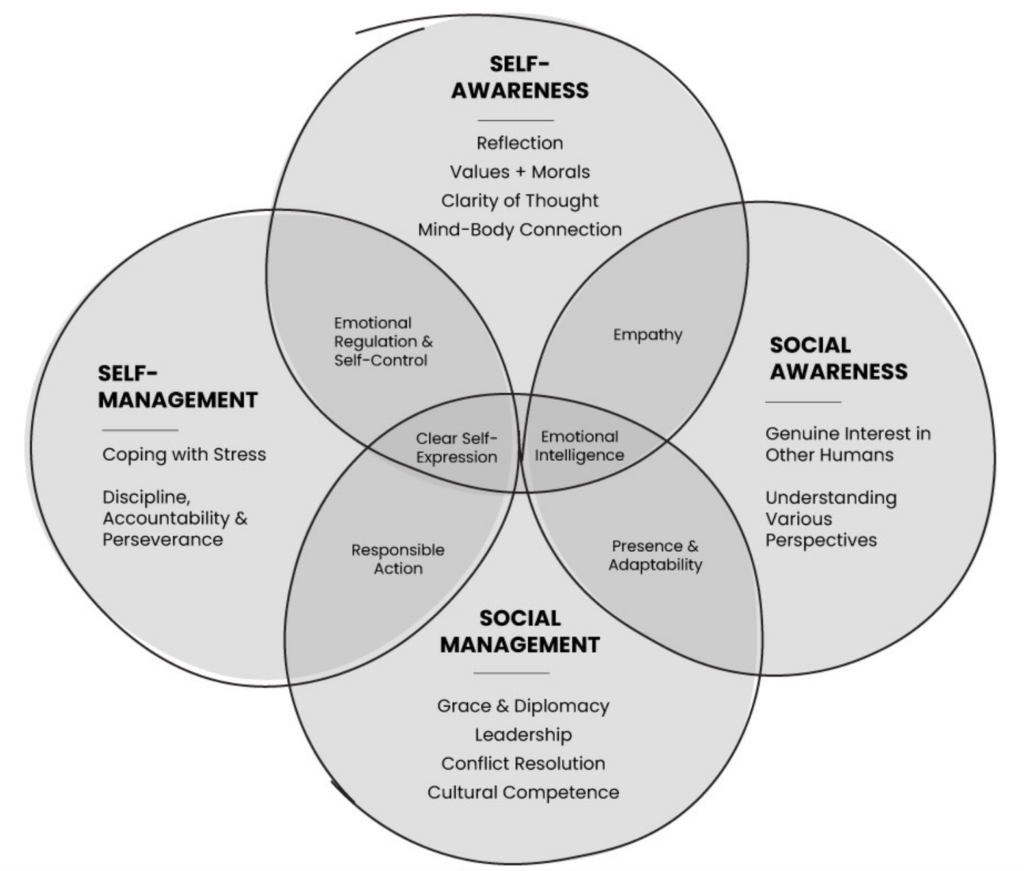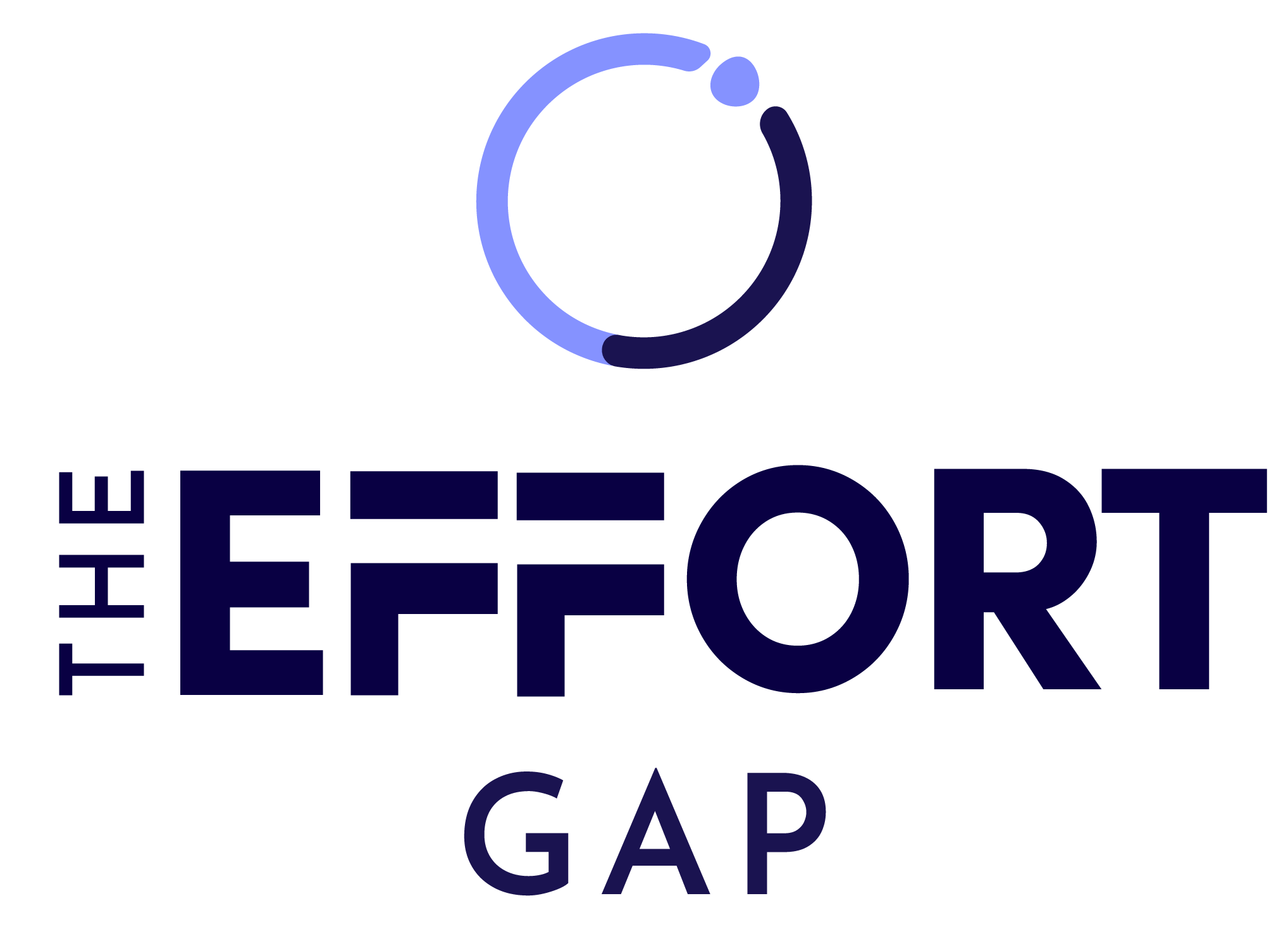Success in American culture is measured by achievement: good grades, professional accolades, social influence. But what happens when the ability of high achievers to manage tasks outpaces their self-understanding?
Many high achievers have strong management skills (self and social), but lack the awareness that gives their actions meaning and direction.
Look at human intelligence and wellness across four pillars:
-
- Self-Awareness (Know Yourself)
-
- Social Awareness (Know Others)
-
- Self Management (Lead Yourself)
-
- Relationship Management (Manage Relationships)

Understand Your Strengths and Areas for Growth
Leading balanced lives requires skills derived from each quadrant. Use this as a roadmap for assessing your current strengths and charting a path for growth in other areas.
✅ High Achievers Have Self Management and Social Management Skills but Lack ⛔ Self-Awareness
Can someone have strong self-management skills without self-awareness? Absolutely! In fact, I once fit into this category. During high school, I was deemed a high achiever, with perfect attendance and straight A’s. My winning strategy: leverage my social management skills to study each teacher, then work their system to earn good grades. One day, my counselor recommended I join advanced courses based on my grades. I declined the opportunity. Call it imposter syndrome, but deep down I knew that my success stemmed from “working the system,” not genuine learning.
I was demonstrating effective management of the expectations and behaviors of other people. My lack of regard for the long-term implications of my approach to school was a sign of low self-awareness. I wasn’t learning. I was performing.
High achiever or not, a lot of people go through life similarly: fixating on how they perform, how they are liked, and how they look. These preoccupations take management skills but lack depth and awareness. Worse, they create unnecessary stress and self-inflicted pressures.
Defining Success for High Achievers
Are you a high achiever who feels like something is missing? You probably don’t need to do more. You need to know yourself better. And that often necessitates a process of reduction.
Ask yourself why you do what you do. Does genuine interest guide you, or do external expectations and the desire to please others guide you? Question the actions that seem automatic. Am I doing this to learn, or just to seem smart? If there were no grades as recognition, would I still care? Am I living according to my own aspirations, or am I just reacting to what’s expected?
Instead of relying on external markers of success, such as approval or recognition, shift your focus to more intrinsic motivators. Unlike external validation, intrinsic motivators carry you forward regardless of the opinions and expectations of others.
Intrinsic motivators for a high achiever can root into core values (identify yours here), and can include:
- Curiosity – A desire to learn, explore, or solve problems
- Mastery – The pursuit of getting better at a skill or subject
- Creativity – Expressing yourself through writing, art, music, or innovative thinking
- Personal Growth – The fulfillment that comes from self-improvement
- Contribution – The drive to positively impact others or support a cause
- Authenticity – The commitment to aligning actions with personal values
- Challenge – The motivation to push beyond comfort zones and test your limits
|






